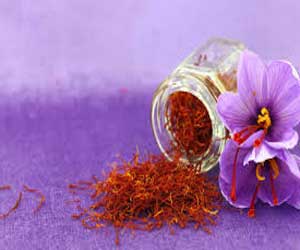- Home
- Editorial
- News
- Practice Guidelines
- Anesthesiology Guidelines
- Cancer Guidelines
- Cardiac Sciences Guidelines
- Critical Care Guidelines
- Dentistry Guidelines
- Dermatology Guidelines
- Diabetes and Endo Guidelines
- Diagnostics Guidelines
- ENT Guidelines
- Featured Practice Guidelines
- Gastroenterology Guidelines
- Geriatrics Guidelines
- Medicine Guidelines
- Nephrology Guidelines
- Neurosciences Guidelines
- Obs and Gynae Guidelines
- Ophthalmology Guidelines
- Orthopaedics Guidelines
- Paediatrics Guidelines
- Psychiatry Guidelines
- Pulmonology Guidelines
- Radiology Guidelines
- Surgery Guidelines
- Urology Guidelines
Saffron as effective as methylphenidate for treating children with ADHD

Saffron a herb has been found to be as effective as methylphenidate for treating children with ADHD, according to a new study. Methylphenidate, marketed as drug Ritalin is the commonly prescribed medicine for attention-deficit hyperactivity disorder in children. But it causes side effects like nausea, stomach ache, decreased appetite, insomnia, and headache and many patients do not tolerate it.
Therefore Saffron may work as a promising herbal medicine for treating children and teens 6-17 years old with attention-deficit hyperactivity disorder(ADHD) particularly for the 30% of patients who do not respond to or cannot tolerate stimulants like methylphenidate. The results of the study were published in the ‘Journal of Child and Adolescent Psychopharmacology’.
Attention-deficit/hyperactivity disorder (ADHD) is one of the most common neuropsychiatric disorders of childhood and adolescence. About 30% of patients do not respond to stimulants or cannot tolerate their side effects. Thus, alternative medication, Saffron like herbal medicine, should be considered. The aim of this trial was to compare the safety and efficacy of Crocus sativus (saffron) versus methylphenidate in improving symptoms of children with ADHD.
The article entitled "Crocus sativus L. Versus Methylphenidate in Treatment of Children with Attention-Deficit/Hyperactivity Disorder: A Randomized, Double-Blind Pilot Study" was co-authored by Sara Baziar, MD, Ali Aqamolaei, MD and colleagues from Tehran University of Medical Sciences, Iran. The researchers note that saffron also has anti-depressant and memory-enhancing properties. They compared the effects of Crocus sativus L. to methylphenidate in 54 patients over a 6-week period and showed no significant difference in effectiveness as well as a similar frequency of adverse effects.
"This is a very interesting study and an intriguing finding. It is worthy of replication and further study to understand the mechanism of action," says Harold S. Koplewicz, MD, Editor-in-Chief of the Journal of Child and Adolescent Psychopharmacology and President of the Child Mind Institute in New York.
For the study, the researchers tested 54 ADHD patients aged six to 17 years and compared the effects of Crocus sativus L.to methylphenidate over a six-week period.
However, it showed no significant difference in effectiveness as well as a similar frequency of adverse effects.
For further reference log on to : https://doi.org/10.1089/cap.2018.0146

Disclaimer: This site is primarily intended for healthcare professionals. Any content/information on this website does not replace the advice of medical and/or health professionals and should not be construed as medical/diagnostic advice/endorsement or prescription. Use of this site is subject to our terms of use, privacy policy, advertisement policy. © 2020 Minerva Medical Treatment Pvt Ltd